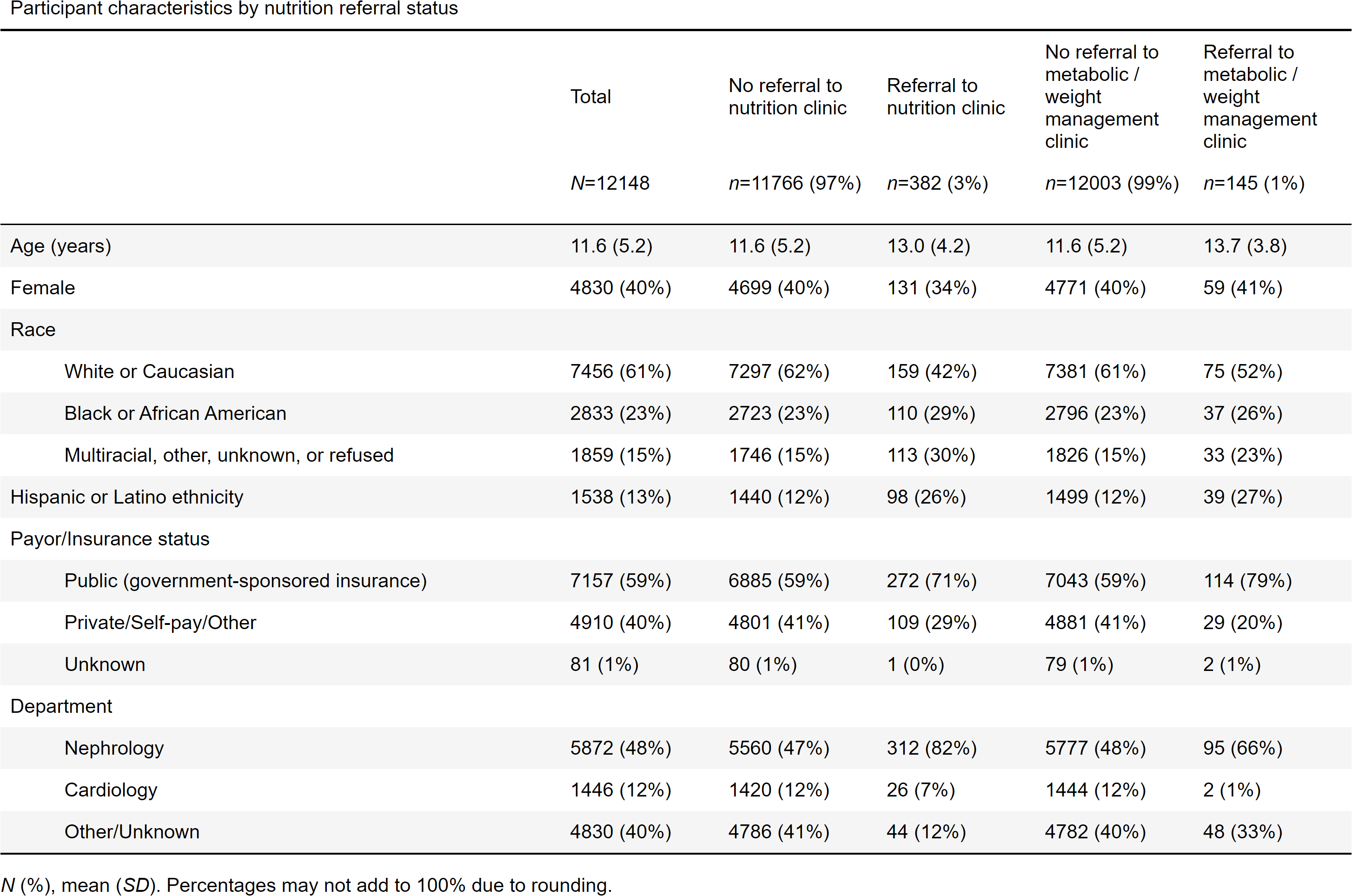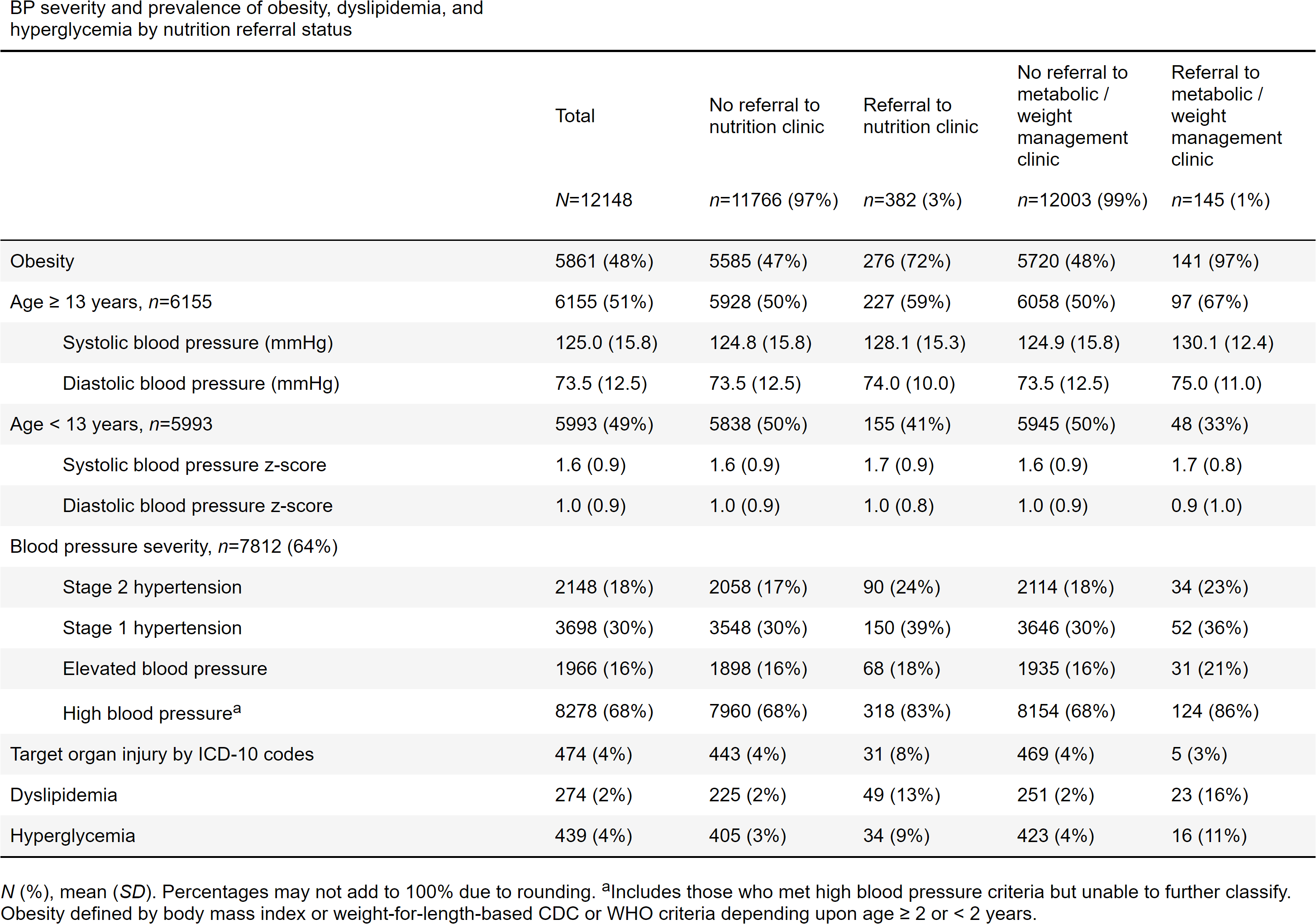Hypertension
Hypertension 1
4 - Association of blood pressure severity, obesity, dyslipidemia, hyperglycemia, and target organ injury with nutrition referral: a SUPERHERO interim analysis
Publication Number: 4.321

Margaret Murphy, PhD, RD
Assistant Professor/Pediatric Renal Dietitian
University of Kentucky College of Medicine
University of Kentucky Healthcare
Lexington, Kentucky, United States
Presenting Author(s)
Background: The prevalence of youth-onset hypertension is rising in concert with increased obesity prevalence. The role of diet for the management of hypertension is well-established in adult literature; however, it is unknown if youth who have cardiovascular risk factors are appropriately referred to a dietitian.
Objective: Determine if youth referred for hypertensive disorders who were referred to a dietitian are more likely to have cardiovascular risk factors including blood pressure severity, obesity, dyslipidemia, hyperglycemia, and target organ injury (TOI).
Design/Methods: Analysis of baseline data from the Study of the Epidemiology of Pediatric Hypertension (SUPERHERO) Registry, a multisite retrospective cohort of youth referred to subspecialty care for hypertension disorders using electronic health record data. Inclusion criteria were an initial subspecialty clinic visit for hypertension disorders identified by ICD-10 codes from 1/1/2015–12/31/2021 and age < 19 years. Exclusion criteria were kidney failure on dialysis, kidney transplantation, or pregnancy by ICD-10 codes. Exposures included blood pressure with z-scores and classification per U.S. guidelines, obesity by BMI or weight-for-length percentiles, and dyslipidemia, hyperglycemia, and TOI by ICD-10 codes. The outcome is order placed for dietitian referral. We estimated the associations with Welch two-sample t-test and unadjusted generalized linear models.
Results:
Of the 12,148 participants, the mean age was 11.6 ±5.2, 40% were female, 61% were White or Caucasian, and 4% (n=527) were referred to nutrition. Participants referred to nutrition had a higher risk of blood pressure severity in the hypertension range (RR 1.31, CI 1.06 to 1.63), obesity (RR 2.47, CI 1.98 to 3.11), dyslipidemia (RR 6.38, CI 4.78 to 8.29), hyperglycemia (RR 2.61, CI 1.82 to 3.6), and TOI (RR 2.18, CI: 1.49 to 3.05) compared to those who were not.
Conclusion(s): In a large multisite cohort of youth referred for hypertension disorders, participants with several cardiovascular risk factors were more likely to be referred to a dietitian. This study suggests that a significant number of patients with hypertension disorders are not referred for nutrition counseling. Ongoing steps include multivariable analysis to investigate nutrition and weight management trends in youth with hypertension disorders. 

